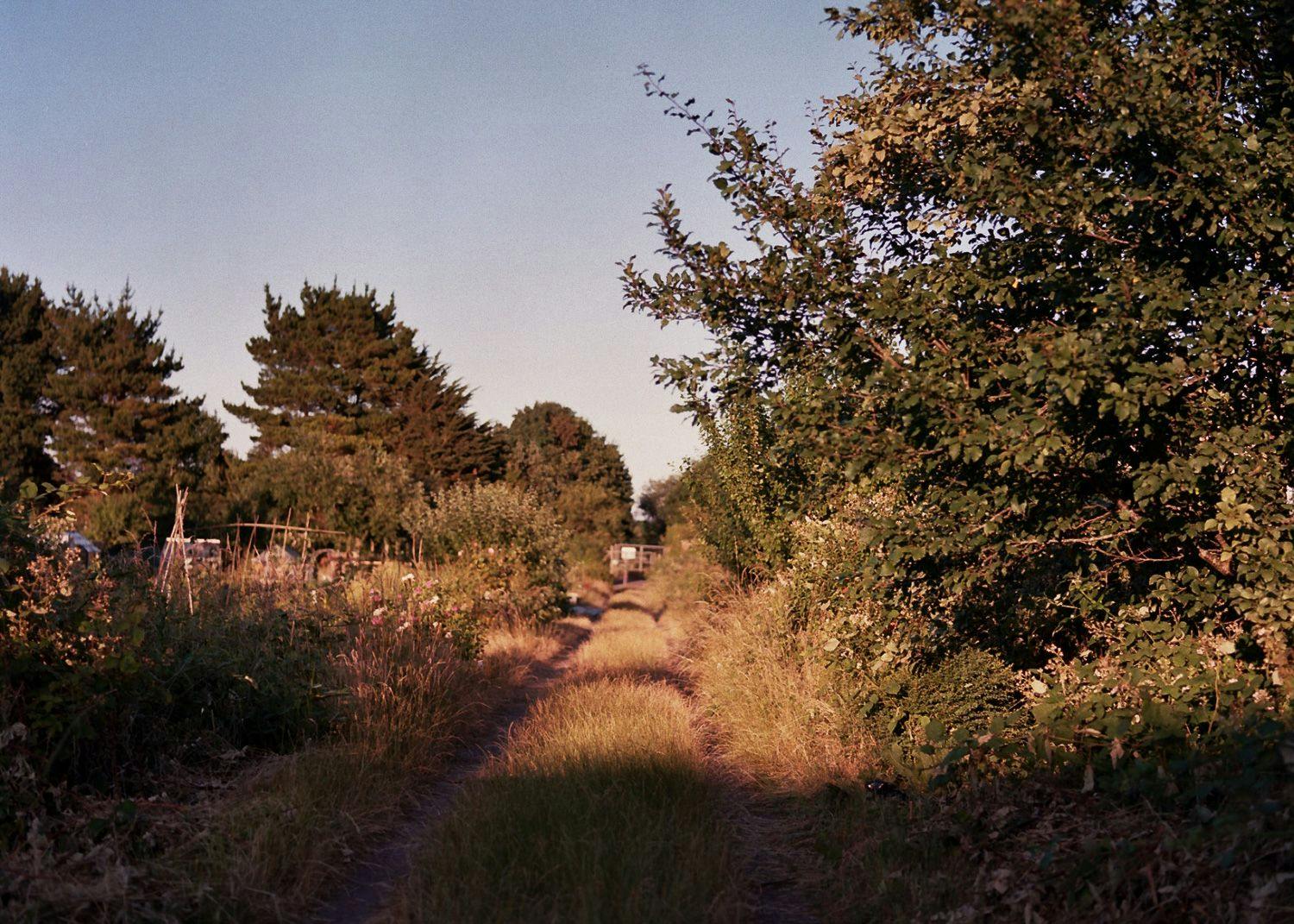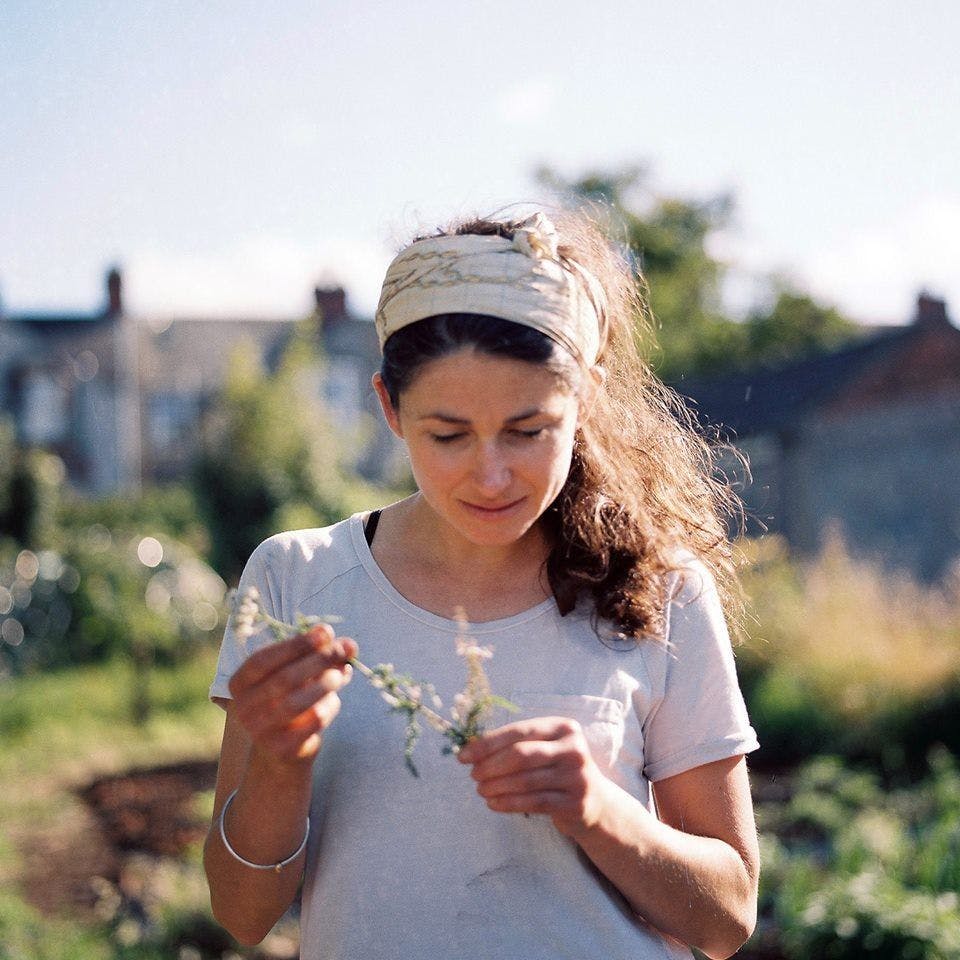Global Gardens Project is a community growing project in Cardiff, Wales. Based on an allotment site in the north of the city, the project hosts weekly community gardening sessions and quarterly suppers at a local community centre cafe. The project also offers workshops with the aim of building sustainable skills in organic gardening, healthy and seasonal cooking and land-based craft. The garden sessions, suppers and workshops bring people together to learn about gardening and cooking and have opportunities for creative expression. The vision of the project is to create a growing space that supports inter-cultural communication and understanding through celebrating cultural and ecological diversity.
The project emerged from Soil and Clay, an earlier iteration of the project funded by the Pears Foundation in 2015. Based at a centre for refugees and asylum seekers in Cardiff, Soil and Clay offered a series of gardening and ceramic sessions to the local community, including refugees and those seeking sanctuary. Facilitated by gardener and researcher Poppy Nicol and ceramicist and baker Jack Welbourne, the sessions aimed to link culturally diverse participants through shared activities of gardening and ceramics. Garden sessions were held at a rural art space on the outskirts of Cardiff. Although participants enjoyed the opportunity to get out of the city and garden in a peaceful setting surrounded by woodlands, it was a 30 mile round trip. When an opportunity arose to acquire a plot of land in Cardiff to become the new base of the project, the founders jumped at the chance.

From clearing to cultivating
When the founders first visited the urban allotment site where Global Gardens Project is now situated in 2016, the plot was overgrown with brambles and litter tangled in the undergrowth. Signs of previous cultivation however offered a glimmer of hope. There was an old apple tree, abundant with cooking apples and an elder tree, ripe with berries. Within an urban jungle of thorns and prickles, these trees indicated potential for growth and cultivation. These two trees, the apple and the elder, are now recognised as the elders of the site, carrying with them the stories of times past. Those brambles which initially felt impenetrable we now realise were acting as a protective covering, guarding the soil for future generations whilst providing habitat for beings in the present.
Since obtaining the keys to the urban plot in the summer of 2016, a growing group of volunteers have cut back the brambles, cleared the litter and created a series of beds to cultivate a range of edible crops. Currently, volunteers include students, refugees, asylum seekers and local families. Much of the work done would not have been accomplishable without their help, alongside a range of local groups and organisations. The energetic Good Gym Cardiff and Vale have helped clear considerable ground in a short amount of time and we have also worked with a local ecotherapy programme that supports people in recovery from addiction. Most recently, an after-school gardening club with a local primary school was piloted, where children learn more about wildlife and growing veg. The project now is working with a forest school practitioner to develop family garden play sessions.
Funding from the National Community Lottery Fund Wales has enabled development of the physical infrastructure at the site. In 2017, a team of Welsh School of Architecture students and lecturers, helped design and build a community greenhouse on the site. This shelter supports hosting of a broad range of workshops at the garden, as well as the propagation of seedlings through the seasons. In 2018, a polytunnel was erected which enables cultivation of heat-loving crops including tomatoes, aubergines and chillies. This year, a compost toilet was installed and a group of carpenters, makers and volunteers are currently in the process of building a community kitchen and learning space. These site improvements are making the site more accessible and welcoming to a wider range of people.

Seasonal and nourishing eating
At the Wednesday garden sessions, people are invited to bring something to share for lunch. Vaida, Global Gardens Project Harvest and Food co-ordinator, is responsible for organising food-related learning and sharing. Vaida shares her passion and motivation for the role:
"I'm quite passionate about harvesting the produce and thinking what to do with it. I don't like letting things go to waste. Being an active participant in the cycle of food, from planting a seed to harvesting and then cooking is a highly satisfying and empowering experience to me. There's nothing better than cooking with locally grown, seasonal produce. It provides me with a sense of completion and feels very grounding."
At garden sessions, people are encouraged to share recipes in the Global Gardens recipe book and website. Produce from the plot is used at quarterly suppers held in a local community cafe. The suppers feature healthy and nourishing approaches to cooking. All of the foods prepared are vegetarian and most are plant-based. Recent suppers have focussed on foraging and fermenting.

Creative expression
There are many different ways for people to engage in the garden space. This year Global Gardens has been further developing the arts and crafts activities on offer, such as willow weaving and creative writing. Writer-in-resident Lucy Smith has been leading the creative writing workshops. She explains:
"I'll be producing some writing every month, hoping to unravel something about what the project is doing, and how learning more about nature and growing can affect us, and maybe reflect back at us some things which are revealing, or comforting, about our lives. Through the creative writing workshops I run I also hope to give others the opportunity to think about how the garden might be having an influence on them, even if it's just for that day.> My writing and the writing from those who took part in the workshops will be published on the Global Gardens website."
This summer participants visited land-based learning centre Coppicewood College, Pembrokeshire to learn about coppicing and green wood-working techniques and in the autumn there are plans to plant a small hazel coppice for further green wood work.
Pottery has been reintegrated into the Global Gardens programme, reconnecting with the clay-based work of the earlier Soil and Clay Project. Resident potter Jack Welbourne is teaching a series of pottery workshops that focus on hand-building techniques and throwing on the wheel. The courses aim to develop skills and produce a range of wares for use at the garden, including mugs and bowls. According to Jack:
"Throwing on the wheel is meditative. It requires a lot of focus."
Weaving, writing, pottery and other land-based craft can be healing processes.

Learning together
Urban community growing spaces are valuable resources for a range of people including newcomers to the city, those seeking sanctuary, as well as those interested in gardening or lacking the space to garden. The community-based approach of the Global Gardens Project particularly benefits those who are unable to commit to a full allotment plot, yet have a keen interest in gardening and growing food.
Shaun Lane is the Global Gardens outreach coordinator. He explains:
“My role here at Global Gardens as Project Coordinator includes recruiting and maintaining a consistent volunteer base and developing and implementing processes that support our work. When people come to the gardens they can roll their sleeves up and get involved or simply relax in the peaceful space enjoying bird song and blossom. People always seem much more relaxed having spent a few hours there. Not only this but it brings people together by breaking down barriers as we must work together to get things done. Another aspect of the gardens is the opportunity for cultural expression - there are often conversations about how certain plants in the garden are grown and used by people around the world, particularly amongst diasporic groups. Also, I speak with many people who used to work with the land, and life as a refugee or asylum seeker in the UK allows little opportunity to be connected with nature in this way - coming to our garden project enables this. Most important of all is that everyone leaves the garden with a bigger smile than they had when they arrived.”
Community growing spaces have the potential to become spaces of learning and connection, enabling people to delve deeper into the practice of gardening and other sustainable skills together.
According to lead student volunteer from Cardiff University, Isabel Ellis:
"A community growing space is beneficial to students in so many ways. Firstly, it provides students with the opportunity to garden, something that, as a student, is not easy as there are no university allotments and student houses rarely have growing spaces. Secondly, students have the opportunity to learn and develop new skills. Everyone is welcome to volunteer. Our student volunteers have a range of abilities and experience of gardening, many are completely new to gardening but some have farming experience. At gardening sessions, volunteers share knowledge and expertise, and develop skills that will be useful throughout life. Through a shared interest in gardening, university students are brought together with members of the local community and refugees."
Currently, the project is supported by Kai Lange who offers guidance around growing with his 30 years of gardening and farming experience.
"People are coming for a great range of reasons to this garden, like the feeling of countryside in the middle of a city, getting away from daily stress, cars, noise and worries. People are seeking to learn, do and feel good about themselves... There is a place for creativity, social engagement and healthy food. I believe community allotments should be in all conventional allotments because they benefit our society in so many ways. Many people like the idea of an allotment, but haven't got the knowledge, skill, confidence or time to take one on. Or there is no allotment available in the area. A community allotment can offer ten times as many people access to allotment space than conventional systems. More GP's are looking to subscribe community and garden work to remedy the rise of depression and similar threats to public health. Loneliness is a rising issue in our cities too. A community garden is also a good way to meet new people in the areas. Also the conventional allotment holders can benefit through sharing expertise, seeds, plants and stories. Community gardens should be supported by local governments equal to parks, green spaces and sports facilities."
Wildness in the City
Growing spaces enable connections with the ecologies within us and around us. From the microbial communities within our bodies to the microbial and mycorrhizal communities inhabiting the soil, we coexist with and depend upon diverse species (Lorimer 2015). Land-based learning and practices enable the deepening and integration of these connections.
# Find out more
Website: [https://www.globalgardensproject.co.uk/](https://www.globalgardensproject.co.uk/)
Twitter: [@globalgardenscf](https://www.twitter.com/globalgardenscf)
Instagram: [@globalgardensproject](https://www.instagram.com/globalgardensproject)
References
Lorimer, Jamie. 2015. Wildlife in the Anthropocene: Conservation after nature. Minnesota: University of Minnesota Press.

